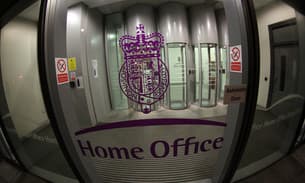
Rendition victims push for release of secret service policies
GCHQ at Cheltenham, Gloucestershire (Photo: Ministry of Defence)
The secret policies governing when the intelligence services can intercept confidential communications between lawyers and clients should be revealed, the Investigatory Powers Tribunal has heard.
Lawyers representing Libyans who allege that they were the victims of extraordinary rendition orchestrated by the UK government have brought the case as an assurance that their clients’ legal communications have not been monitored.
Under UK law, such communications hold ‘absolute privilege’, meaning that they are legally entitled to secrecy.
The case has arisen as part of a wider lawsuit in which the Libyans are suing the UK government for its role in sending them back to Gadaffi’s Libya, where they allege they were mistreated.
One of the complainants in the case is the defector Abdul-Hakim Belhadj, a former intelligence officer under Gadaffi. He claims he was rendered to Libya before the revolution along with his pregnant wife.
Lawyers representing the Libyans have asked for a range of policies to be disclosed. These include guidelines as to the kinds of ways that the security services can use privileged information when it is monitored, as lawyers are concerned that such information could potentially be used to prejudice trials.
The government has released summaries of some of its policies, though has steadfastly refused to release the policies in full, in what the presiding official of the tribunal, Mr Justice Burton, described as an ‘over my dead body’ position.
The hearing at the IPT mirrors the Bureau’s petition to the European Court of Human Rights, in which the Bureau is asking the European Court to rule on whether UK legislation adequately protects journalistic sources.
In its case the Bureau is relying on Article 10 of the European Convention of Human Rights, which legally mandates the protection of journalists’ sources as a means to ensure freedom of expression.
Read full details of the Bureau’s case here.




